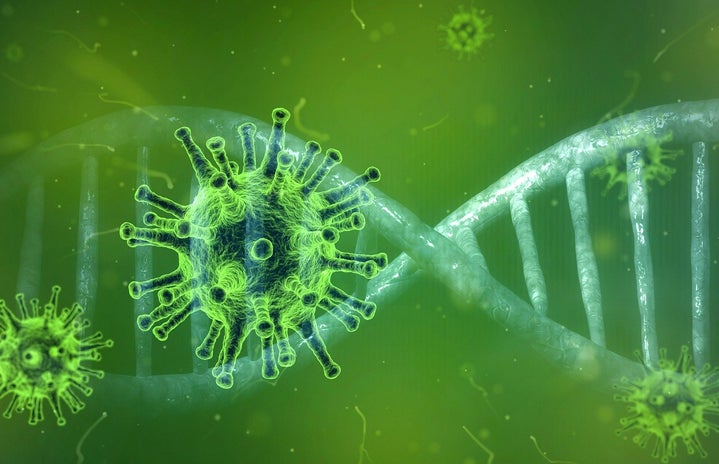Another year, another global crisis. This time, we’re up against a pandemic the likes of—actually, no. COVID-19, in reality, hasn’t been the worst or nearly the most deadly pandemic in the last hundred years. In fact, the outbreak-then-turned-pandemic reveals a horrifying truth about contemporary society: there’s no need for this many people to get infected or die.
The symptoms of coronavirus are particularly fatal for people older than 75 and those with underlying health conditions. Most outbreaks or serious illnesses would represent a threat to these portions of the population anyhow. That being said, the issue lies within the governments’ inability to control the spread of the disease and take preemptive measures that actually value the people’s health. Countries like Singapore and South Korea managed to control the spread of the illness by putting public health measures above the individual responsibility that each citizen has in trying not to be exposed to the virus.
But how does one altogether avoid this? Before COVID-19 blew up globally, most people were living their lives as they usually did: attending concerts, going to the movies, hugging their loved ones, picking out the ripest fruit at the supermarket, traveling, and more. The 14-day incubation period of the virus provoked a staggering increase of confirmed cases in a short period of time. A lot of people were already infected before they even knew that there was a threat to face. This was when public health measures should have been implemented.
The governments that have succeeded in lowering the death toll and number of cases in their countries are those that enforced public health measures effectively, such as implementing mass testing, developing accessible medication, monitoring potential and confirmed cases, and creating educational campaigns that don’t undermine the seriousness of this illness. On the other hand, the countries with the largest population of senior citizens that refused to take immediate action were the ones with the largest death tolls.
It’s clear that, in the 21st century, we have the means to prevent the massive spread of this type of virus. Part of the reason why people are dying is that, as previously mentioned, they have underlying conditions or diseases they haven’t been able to get treated for due to a lack of access to healthcare. This is plain common sense: if you have a condition that makes you vulnerable to getting sick, you’ll be a sitting duck during a pandemic unless public health measures guarantee that you, the most vulnerable, can remain safe.
There are two other culprits, though. Many countries refused to shut down their tourism industries during the outbreak in other nations to avoid economic losses. Now, those same countries are facing the consequences of letting people who were exposed to the virus travel freely within their borders without even taking the appropriate health measures, such as testing and monitoring potential cases. Additionally, many companies and corporate entities did not care for social distancing measures and had their workers laboring in dangerous conditions during the spread of the virus.
CDC advises against nonessential international travel. If you travel, know that your plans may be disrupted & your return to the US could be delayed. For more, see https://t.co/5YgWL4164f. pic.twitter.com/RVAju9OtqX
— CDC Travel Health (@CDCtravel) June 7, 2020
Many other companies saw the opportunity to generate and increase revenue by creating additional products that would help mitigate the effects and spread of the virus. Innovative or not, there wouldn’t have been a need if the appropriate public measures had been put in place from the very beginning. At the end of the day, the companies that license, distribute, and sell these products to keep the earnings for themselves and to potentially develop a product that they will continue to make revenue off of. Many others asked for tax-exemptions under the ruse of “injecting the economy during tough times” and “adapting labor laws to the current critical situation.” These are codes for eliminating labor laws that were earned in the last century to increase companies’ earning and further exploit the labor of many who don’t really have any other choice. Naomi Klein defines this as “disaster capitalism” in her book, The Shock Doctrine.
The final consequences of this pandemic are yet to be seen, but what we know at this very moment is that it could have been prevented, and the sole proof is in the countries that have handled this crisis effectively. The next time someone says that the coronavirus is deadly and fatal, remind them that during every flu season in the US, tens of thousands die every year. One would have thought that something as common as the flu wouldn’t be claiming so many lives at this point in history. Still, it seems that the cause is an underlying problem that is the precise reason that so many have died and been infected: a lack of access to healthcare and a lack of adequate public health measures.
I rest my case.


